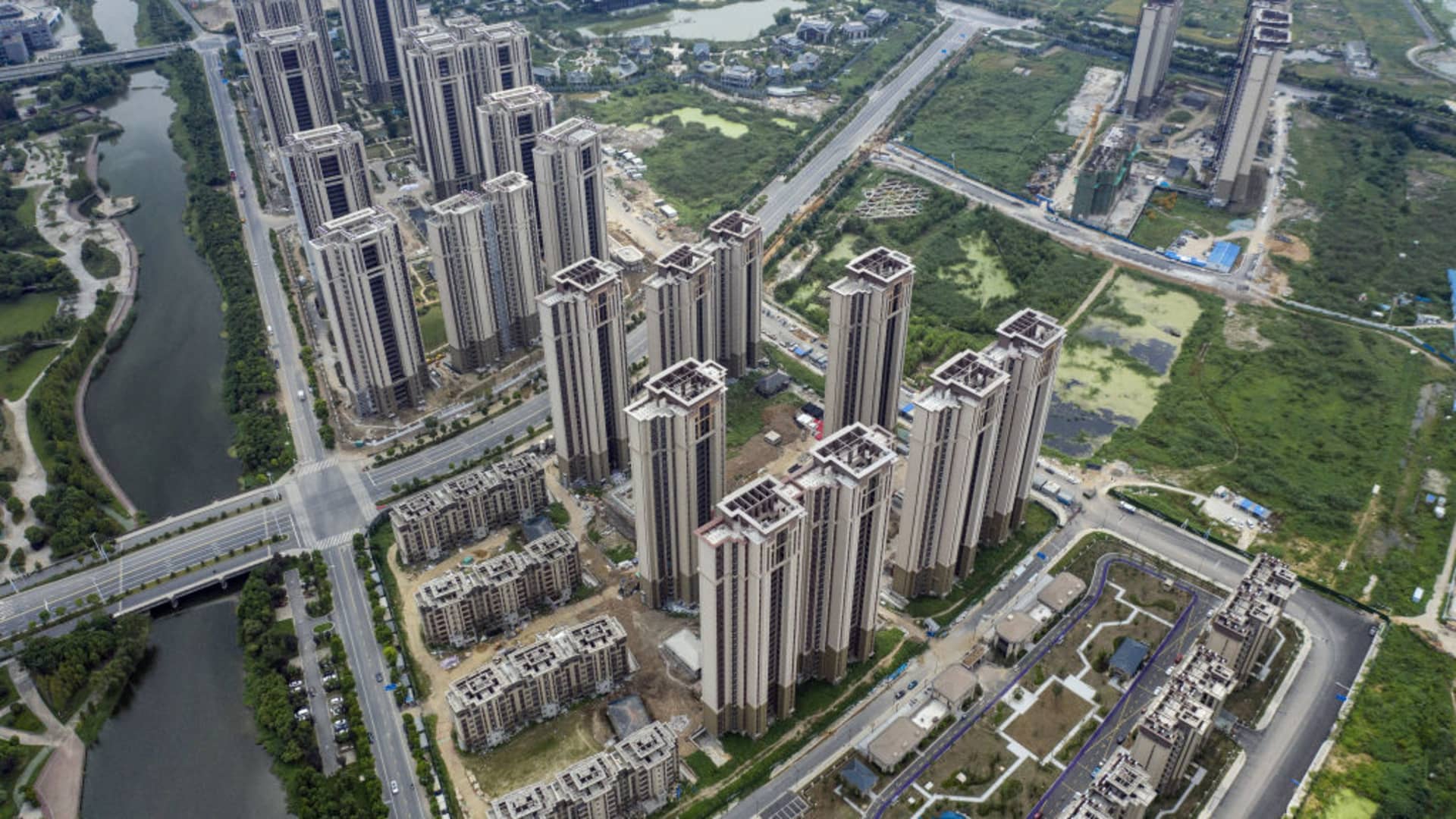Evergrande's shares plummeted by over 80% as they resumed trading in Hong Kong, following the company's announcement of a $4.5 billion loss for the first half of the year, exacerbating concerns about China's real estate market crisis.
China Evergrande Group, the heavily indebted real estate developer, is set to resume trading on Monday after a 17-month suspension, following a reported loss of $4.5 billion in the first half of the year.
Evergrande Group, the highly indebted Chinese real estate developer, has reported a narrower net loss for the first half of the year thanks to a rise in revenue driven by the property market's short-term boom, despite the company facing financial struggles and applying for bankruptcy in the US.
Shares of Chinese property developer Evergrande surged as much as 82% on Wednesday, leading gains on the Hang Seng Index, following reports of successful bond coupon payments by Country Garden, signaling a potential recovery in the country's property sector.
China Evergrande Group has announced a delay in making a decision on offshore debt restructuring, giving more time for Hong Kong CEG class holders of debt to consider its new restructuring plan.
Chinese police have detained employees at Evergrande Wealth Management, the financial subsidiary of Evergrande, after the company failed to make payments on its investment products, marking the first time employees have been detained; the case is under further investigation.
Shares of China Evergrande Group fell 25% after police detained staff at its wealth management unit, adding to the embattled developer's troubles amidst China's real estate crisis.
Shares in crisis-hit China Evergrande have plunged by up to a quarter after the apparent detention of staff by police, reigniting concerns about the state of the company and China's wider property sector.
China Evergrande Group, a distressed property group, is unable to issue new debt due to an ongoing probe into its key subsidiary Hengda Real Estate Group, further complicating its efforts to restructure offshore debt.
Shares of Evergrande, the embattled Chinese real estate firm, plummeted 25% after announcing a delay in its debt restructuring meeting, causing a sell-off in the sector and turning Evergrande into a penny stock.
Distressed Chinese property developer Evergrande Group's debt fears weigh on Chinese stocks, raising concerns about the world's second-largest economy.
Shares in Evergrande closed down 7% on Tuesday after the embattled property developer missed another bond payment, raising concerns about the company's ability to restructure its debt and the potential for a disorderly collapse that could damage China's wider economy.
U.S. stocks were mixed with the Dow Jones slipping 0.2%, the S&P 500 unchanged, and the Nasdaq Composite adding 0.22%, while oil prices surged to their highest in over a year and shares of China Evergrande Group were suspended after reporting significant losses, all raising concerns and making it difficult for stocks to gain confidence to climb.
China's real estate giant Evergrande is facing a series of setbacks, including a suspension of trading and investigations into its executives, raising concerns about a potential liquidation and the negative impact on China's economy.
China Evergrande Group's founder, Hui Ka Yan, is under investigation for suspected "illegal crimes," raising concerns among creditors about the company's future as it faces a debt revamp plan and liquidation risk. The investigation marks the first indication that authorities could hold the billionaire accountable for Evergrande's financial troubles, which have had a significant impact on China's property sector and economy as a whole. The investigation has disrupted the hopes of successful restructuring and has increased the likelihood of liquidation.
Shares of Chinese real estate giant Evergrande have surged after trading in the company resumed in Hong Kong following a temporary suspension, amidst investigations into its billionaire founder and a default on its debts, triggering a property crisis in China.
